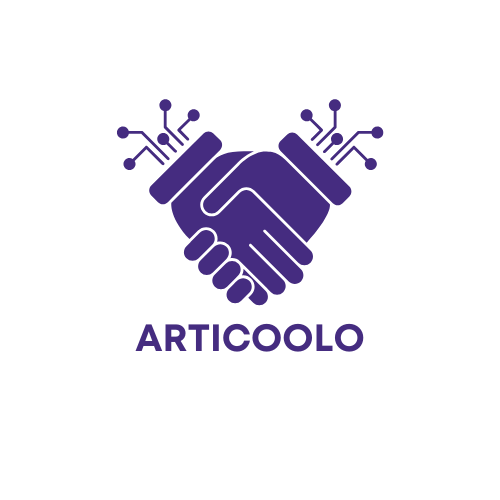Trust is the bedrock of the gambling industry. Without absolute confidence that outcomes are random and payouts are guaranteed, the entire system collapses. While traditional regulatory bodies, such as the Ministry of Finance in Poland, work diligently to supervise licensed operations, the digital nature of online casinos introduces new challenges regarding transparency. Blockchain technology, often associated with cryptocurrencies, is emerging as a powerful, hidden tool capable of providing an unprecedented level of verifiability and fairness in the iGaming sector. Ultimately, all players are looking for a reliable and proven experience, whether that’s through innovative new blockchain systems or trusted, established platforms like Vulkan Bet.
From Random Numbers to Transparent Records
The move toward blockchain technology requires a fundamental shift in how casino operations are structured, challenging the opaque systems of the past. The first and most critical function DLT provides is absolute transparency in the generation of game results.
The core promise of blockchain in gambling lies in the concept of the Provably Fair system. In conventional online casinos, the outcomes are determined by a Random Number Generator (RNG) managed on the operator’s private servers. While auditors verify the RNG software, the process remains opaque to the end-user. The player essentially relies on the operator’s trustworthiness.

Blockchain upends this model by leveraging distributed ledger technology (DLT). By recording every transaction and every spin outcome on a public, immutable ledger, the system allows any player to verify the fairness of the game they just played without needing to trust the operator. Transparency is the default setting. The move towards such verified, secure, and easily accessible platforms will only strengthen the reputation of reputable operators.
Smart Contracts: Guaranteeing Payouts and Eliminating Disputes
While ensuring randomness is crucial, transparency must extend beyond the game itself and into the financial realm. This next layer of blockchain innovation, the smart contract, guarantees that the rules of engagement are enforced by code, not by corporate policy.
Beyond recording game outcomes, blockchain’s most revolutionary element for fairness is the smart contract. These are self-executing contracts with the terms of the agreement directly written into code. In the context of a casino, a Smart Contract can manage the entire betting process:
- Bet Placement: A player places a bet (using cryptocurrency or fiat represented on the blockchain).
- Game Outcome: The game’s provably fair RNG generates a result, which is instantly recorded on the contract.
- Automatic Payout: If the player wins, the smart contract automatically executes the pre-programmed terms, instantly releasing the funds to the player’s wallet.
This automated process drastically reduces the time and administrative overhead associated with payouts and, more importantly, eliminates the possibility of operator interference or delay in releasing winnings. It creates a trustless system where the code, rather than a corporation, enforces the rules. This is particularly appealing in jurisdictions with strict regulatory oversight, such as Poland, as it provides regulators with an easily auditable, tamper-proof record of every financial transaction.
Implementation Challenges in the Polish Market
Despite the clear benefits for security and trust, integrating this technology into an established and centralized financial market like Poland’s is not without significant regulatory and logistical hurdles. Understanding these implementation challenges is key to predicting the timeline for mass adoption.
While the technology offers significant benefits, integrating it into the Polish market—which has a highly centralized and regulated financial and gambling sector—is complex. One major challenge is regulatory acceptance. Although the technology is secure, regulators must establish standards for auditing decentralized systems. Furthermore, while the Polish financial sector has shown interest in DLT, mass adoption in regulated sectors is slow.
There are the three main stages of blockchain integration in iGaming:
- Initial Stage: Wallet and Payout Transparency. Operators begin accepting popular cryptocurrencies, using a blockchain wallet to record and process immediate withdrawals, improving transaction speed and accountability.
- Intermediate Stage: Provably Fair Games. Implementation of transparent RNG algorithms that allow players to verify the randomness of individual game results using cryptography.
- Advanced Stage: Full Smart Contract Operation. Entire games, including wagers, stakes, and payouts, are managed purely by self-executing contracts on a decentralized network, eliminating the need for traditional servers for core game logic.
The Future of Integrity in Digital Gambling
Overcoming these structural challenges will ultimately position blockchain as the leading standard for verifiable integrity. This future looks inevitable, driven by consumer demand for higher standards of fairness.
The partnership between blockchain and iGaming is inevitable. It shifts the burden of trust from the operator to verifiable, open-source code. As Polish regulatory bodies continue to modernize their oversight capabilities, decentralized ledger technology offers a pathway to increase consumer confidence, decrease operational costs related to disputes, and ensure the highest possible standards of fair play.















Discussion about this post